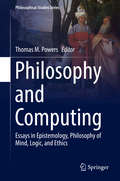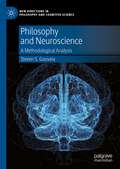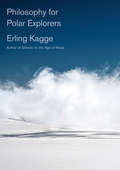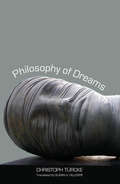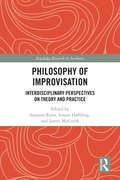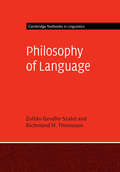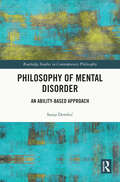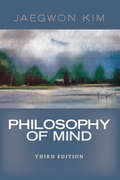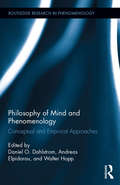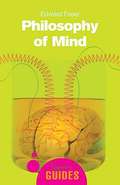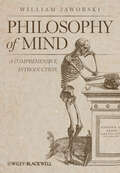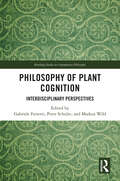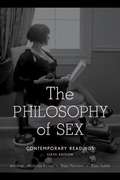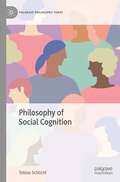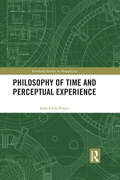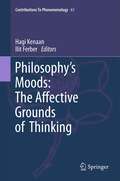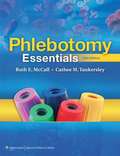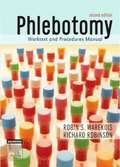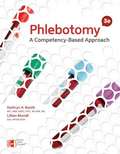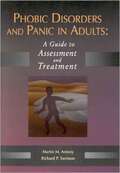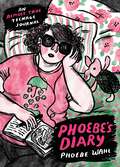- Table View
- List View
Philosophy and Computing
by Thomas M. PowersThis book features papers from CEPE-IACAP 2015, a joint international conference focused on the philosophy of computing. Inside, readers will discover essays that explore current issues in epistemology, philosophy of mind, logic, and philosophy of science from the lens of computation. Coverage also examines applied issues related to ethical, social, and political interest. The contributors first explore how computation has changed philosophical inquiry. Computers are now capable of joining humans in exploring foundational issues. Thus, we can ponder machine-generated explanation, thought, agency, and other quite fascinating concepts. The papers are also concerned with normative aspects of the computer and information technology revolution. They examine technology-specific analyses of key challenges, from Big Data to autonomous robots to expert systems for infrastructure control and financial services. The virtue of a collection that ranges over philosophical questions, such as this one does, lies in the prospects for a more integrated understanding of issues. These are early days in the partnership between philosophy and information technology. Philosophers and researchers are still sorting out many foundational issues. They will need to deploy all of the tools of philosophy to establish this foundation. This volume admirably showcases those tools in the hands of some excellent scholars.
Philosophy and Neuroscience: A Methodological Analysis (New Directions in Philosophy and Cognitive Science)
by Steven S. GouveiaThis book explores the methodological strategies for linking philosophy and neuroscience concerning the study of the conscious brain. The author focuses on four distinct methods for relating these two academic disciplines: isolationist, reductionist, neurophenomenological, and non-reductionist. After analyzing the pros and cons of these approaches, Steven S. Gouveia applies them to the concept of Qualia and Information to understand how the metaphilosophical assumptions of each approach influence the definitions of those specific concepts. Gouveia argues for an approach that conceives the interdisciplinarity of both philosophy and neuroscience, in a particular and sound methodology, offering empirical examples of the explanatory power of this methodology over the others. Additionally, he shows how the metaphilosophical assumptions of each methodology—usually taken by researchers implicitly and unconsciously—influence their own approach to the methodological problem.
Philosophy for Polar Explorers: What They Don't Teach You In School
by Erling KaggeA thoughtful, eloquent meditation on bringing adventure and exploration into your daily life, from the author of Silence and WalkingErling Kagge is an explorer par excellence. He has accomplished things that most of us can't even imagine--for example: he's climbed Mount Everest and reached both the North and South Poles on foot. Yet in this slim, inspiring, lyrical book, he teaches us how to apply an explorer's mentality to our own daily lives. Simple things like getting up early and accepting failure can make a difference whether we are battling an arctic storm en route to the South Pole or stuck in traffic on our way to work. And larger lessons, like learning not to chase happiness and being receptive to goals, can benefit our lives enormously.Punctuating these lessons with stories from his own life and travels, Kagge invites readers to treat life like an exploration and illuminates the possibilities that await us when we do.
Philosophy of Dreams
by Susan H. Gillespie Christoph TurckeWhy has humankind developed so differently from other animals? How and why did language, culture, religion, and the arts come into being? In this wide-ranging and ambitious essay, Christoph Türcke offers a new answer to these timeworn questions by scrutinizing the phenomenon of the dream, using it as a psychic fossil connecting us with our Stone Age ancestors. Provocatively, he argues that both civilization and mental processes are the results of a compulsion to repeat early traumas, one to which hallucination, imagination, mind, spirit, and God all developed in response. Until the beginning of the modern era, repetition was synonymous with de-escalation and calming down. Then, automatic machinery gave rise to a new type of repetition, whose effects are permanent alarm and distraction. The new global forces of distraction, Türcke argues, are producing a specific kind of stress that breaks down the barriers between dreams and waking consciousness. Türcke’s essay ends with a sobering indictment of this psychic deregulation and the social and economic deregulations that have accompanied it.
Philosophy of Improvisation: Interdisciplinary Perspectives on Theory and Practice (Routledge Research in Aesthetics)
by Susanne Ravn; Simon Høffding; James McGuirkThis volume brings together philosophical and interdisciplinary perspectives on improvisation. The contributions connect the theoretical dimensions of improvisation with different viewpoints on its practice in the arts and the classroom. The chapters address the phenomenon of improvisation in two related ways. On the one hand, they attend to the lived practices of improvisation both within and without the arts in order to explain the phenomenon. They also extend the scope of improvisational practices to include the role of improvisation in habit and in planned action, at both individual and collective levels. Drawing on recent work done in the philosophy of mind, they address questions such as whether improvisation is a single unified phenomenon or whether it entails different senses that can be discerned theoretically and practically. Finally, they ask after the special kind of improvisational expertise which characterizes musicians, dancers, and other practitioners, an expertise marked by the artist’s ability to participate competently in complex situations while deliberately relinquishing control. Philosophy of Improvisation will appeal to anyone with a strong interest in improvisation, to researchers working in philosophy, aesthetics, and pedagogy as well as practitioners involved in different kinds of music, dance, and theater performances.
Philosophy of Language (Cambridge Textbooks in Linguistics)
by Zoltán Gendler Szabó Richmond H. ThomasonThis unique textbook introduces linguists to key issues in the philosophy of language. Accessible to students who have taken only a single course in linguistics, yet sophisticated enough to be used at the graduate level, the book provides an overview of the central issues in philosophy of language, a key topic in educating the next generation of researchers in semantics and pragmatics. Thoroughly grounded in contemporary linguistic theory, the book focus on the core foundational and philosophical issues in semantics and pragmatics, richly illustrated with historical case studies to show how linguistic questions are related to philosophical problems in areas such as metaphysics, epistemology, and ethics. Students are introduced in Part I to the issues at the core of semantics, including compositionality, reference and intentionality. Part II looks at pragmatics: context, conversational update, implicature and speech acts; whilst Part III discusses foundational questions about meaning. The book will encourage future collaboration and development between philosophy of language and linguistics.
Philosophy of Mental Disorder: An Ability-Based Approach (Routledge Studies in Contemporary Philosophy)
by Sanja DembićThis book offers an ability-based view of mental disorders. It develops a detailed analysis of the concept of inability that is relevant in the psychiatric and psychotherapeutic context by drawing on the most recent literature on the concepts of ability, reasons, and harm. What is it to have a mental disorder? This book contends that an individual has a mental disorder if and only if (1) they are・in the relevant sense・unable to respond adequately to their available (apparent) reasons in their thinking, feeling, or acting, and (2) they are harmed by the condition underlying or resulting from that inability. The author calls this the “Rehability View.” This view can account for what is “mental” about mental disorders: it is the rational relations among an individual’s attitudes and actions that are “disordered,” and the relevant norms are the norms of reasons. This view is compatible with explanations of mental disorders in terms of biological dysfunctions, without reducing the former to the latter. The aim is not to offer just another conception of mental disorder, but to develop a systematic approach that incorporates insights from the philosophy of psychiatry and adjacent philosophical disciplines. Philosophy of Mental Disorder will be of interest to scholars and advanced students working in philosophy of psychiatry, philosophy of mind, philosophy of action, ethics, and mental health.
Philosophy of Mind
by Jaegwon KimKim (philosophy, Brown U. ) presents an updated third edition of the classic book which presents a concise overview of the philosophy of mind. First introduced by Descartes 400 years ago, philosophy of mind is a broad philosophical approach to consciousness and the mind-body relationship. This introductory work for upper-level philosophy students has been updated with new sections on consciousness as well as an overall improvement of the book's language flow. Annotation ©2011 Book News, Inc. , Portland, OR (booknews. com)
Philosophy of Mind
by Jaegwon KimThe philosophy of mind has long been part of the core philosophy curriculum, and this book is the classic, comprehensive survey of the subject. Designed as an introduction to the field for upper-level undergraduates and graduate students, Philosophy of Mind focuses on the mind-body problem and related issues, some touching on the status of psychology and cognitive science. The third edition has been thoroughly updated throughout to reflect developments of the past decade, and it is the only text of its kind that provides a serious and respectful treatment of substance dualism. This edition also includes two new chapters on the nature of consciousness and the status of consciousness. Improved readability and clarity has been one important aim of the new edition. Throughout the text, author Jaegwon Kim allows readers to come to their own terms with the central problems of the mind. At the same time, Kim's own emerging views are on display and serve to move the discussion forward. Comprehensive, clear, and fair, Philosophy of Mind is a model of philosophical exposition and a significant contribution to the field.
Philosophy of Mind
by Jaegwon KimThe philosophy of mind has long been part of the core philosophy curriculum, and this book is the classic, comprehensive survey of the subject. Designed as an introduction to the field for upper-level undergraduates and graduate students, Philosophy of Mind focuses on the mind-body problem and related issues, some touching on the status of psychology and cognitive science. The third edition has been thoroughly updated throughout to reflect developments of the past decade, and it is the only text of its kind that provides a serious and respectful treatment of substance dualism. This edition also includes two new chapters on the nature of consciousness and the status of consciousness. Throughout the text, author Jaegwon Kim allows readers to come to their own terms with the central problems of the mind. At the same time, Kim’s emerging views are on display and serve to move the discussion forward. Comprehensive, clear, and fair, Philosophy of Mind is a model of philosophical exposition and a significant contribution to the field.
Philosophy of Mind and Phenomenology: Conceptual and Empirical Approaches (Routledge Research in Phenomenology)
by Daniel O. Dahlstrom Walter Hopp Andreas ElpidorouThis volume identifies and develops how philosophy of mind and phenomenology interact in both conceptual and empirically-informed ways. The objective is to demonstrate that phenomenology, as the first-personal study of the contents and structures of our mentality, can provide us with insights into the understanding of the mind and can complement strictly analytical or empirically informed approaches to the study of the mind. Insofar as phenomenology, as the study or science of phenomena, allows the mind to appear, this collection shows how the mind can reappear through a constructive dialogue between different ways—phenomenological, analytical, and empirical—of understanding mentality.
Philosophy of Mind: A Beginner's Guide (Beginner's Guides)
by Edward FeserIn this lively and entertaining introduction to the philospohy of the mind, Edward Feser explores the questions central to the discipline.
Philosophy of Mind: A Comprehensive Introduction
by William JaworskiPhilosophy of Mind introduces readers to one of the liveliest fields in contemporary philosophy by discussing mind-body problems and the various solutions to them. It provides a detailed yet balanced overview of the entire field that enables readers to jump immediately into current debates. Treats a wide range of mind-body theories and arguments in a fair and balanced way Shows how developments in neuroscience, biology, psychology, and cognitive science have impacted mind-body debates Premise-by-premise arguments for and against each position enable readers to grasp the structure of each argument quickly and easily Diagrams and illustrations help readers absorb the more complex ideas Bibliographic essays at the end of each chapter bring readers up to date on the latest literature Written in a clear, easy to read style that is free of technical jargon, and highly accessible to a broad readership The only book to explain systematically how a hylomorphic theory such as Aristotle’s can contribute to current mind-body debates and vie with current mind-body theories Online chapters on free will and the philosophy of persons make the book a flexible teaching tool for general and introductory philosophy courses - available at www.wiley.com/go/jaworski
Philosophy of Mind: Classical and Contemporary Readings
by David J. ChalmersA collection of articles ranging from Descartes to the present, covering the major issues and controversies in the philosophy of mind.
Philosophy of Plant Cognition: Interdisciplinary Perspectives (Routledge Studies in Contemporary Philosophy)
by Gabriele Ferretti, Peter Schulte, and Markus WildThis volume features new research about the philosophy of plant intelligence and plant cognition, one of the most intriguing and complex current debates at the intersection of biology, cognitive science and philosophy.The debate about plant cognition is marked by deep disagreements. Some theorists are confident that the empirical evidence supports the ascription of cognitive capacities to plants. Others hold that such claims are overblown, and defend more traditional, non-cognitive accounts of plant behavior. Still others seek to formulate intermediate positions. This volume brings together leading researchers from across this theoretical spectrum to tackle the foundational questions that are at issue in the debate about plant cognition. The contributions focus on the philosophical questions raised by recent discoveries and controversies in the empirical sciences, such as: Can plants be said to have genuine cognitive abilities? Can they be characterized as representing or perceiving their environment, as pursuing goals, or even as having some form of conscious experience? Which data could provide evidence for such characterizations? And what are possible implications of these issues for general questions about the nature of cognition, representation, perception, and consciousness?Philosophy of Plant Cognition will be of interest to scholars and students working in philosophy of mind, philosophy of biology, cognitive science, and plant biology.
Philosophy of Sex
by Alan Soble Raja Halwani Nicholas PowerFeaturing twenty-nine essays, thirteen of which are new to this edition, this best-selling volume examines the nature, morality, and social meanings of contemporary sexual phenomena. Topics include sexual desire, masturbation, sex on the Internet, homosexuality, transgender and transsexual issues, marriage, consent, exploitation, objectification, rape, pornography, promiscuity, and prostitution.
Philosophy of Social Cognition (Palgrave Philosophy Today)
by Tobias SchlichtThis introductory textbook provides a comprehensive and up-to-date overview of the main issues in contemporary philosophy of social cognition. It explains and critically discusses each of the key philosophical answers to the captivating question of how we understand the mental life of other sentient creatures. Key Features:· Clearly and fully describes the major theoretical approaches to the understanding of other people’s minds.· Suggests the major advantages and limitations of each approach, indicating how they differ as well as the ideas they have in common. · Tests each philosophical theory against the best available empirical data from psychology, neuroscience and psychopathology.· Includes suggestions for additional reading and practice study questions at the end of each chapter. Philosophy of Social Cognition is essential reading for all undergraduate and graduate students taking introductory courses on social cognition. It is also ideal for courses on cognitive neuroscience, social psychology and sociological theory.
Philosophy of Time and Perceptual Experience (Routledge Studies in Metaphysics)
by Sean Enda PowerThis book explores the important yet neglected relationship between the philosophy of time and the temporal structure of perceptual experience. It examines how time structures perceptual experience and, through that structuring, the ways in which time makes perceptual experience trustworthy or erroneous. Sean Power argues that our understanding of time can determine our understanding of perceptual experience in relation to perceptual structure and perceptual error. He examines the general conditions under which an experience may be sorted into different kinds of error such as illusions, hallucinations, and anosognosia. Power also argues that some theories of time are better than others at giving an account of the structure and errors of perceptual experience. He makes the case that tenseless theory and eternalism more closely correspond to experience than tense theory and presentism. Finally, the book includes a discussion of the perceptual experience of space and how tenseless theory and eternalism can better support the problematic theory of naïve realism. Philosophy of Time and Perceptual Experience originally illustrates how the metaphysics of time can be usefully applied to thinking about experience in general. It will appeal to those interested in the philosophy of time and debates about the trustworthiness of experience.
Philosophy's Moods: The Affective Grounds of Thinking
by Ilit Ferber Hagi KenaanPhilosophy's Moods is a collection of original essays interrogating the inseparable bond between mood and philosophical thinking. What is the relationship between mood and thinking in philosophy? In what sense are we always already philosophizing from within a mood? What kinds of mood are central for shaping the space of philosophy? What is the philosophical imprint of Aristotle's wonder, Kant's melancholy, Kierkegaard's anxiety or Nietzsche's shamelessness? Philosophy's Moods invites its readers to explore the above questions through diverse methodological perspectives. The collection includes twenty-one contributions by internationally renowned scholars as well as younger and emerging voices. In pondering the place of the subjective and personal roots that thinking is typically called to overcome, the book challenges and articulates an alternative to a predominant tendency in philosophy to view the theoretical content and the affective side of thought as opposed to one another.
Phlebotomy Essentials (4th Edition)
by Ruth E. Mccall Cathee M. TankersleyThe text provides accurate, practical information and instruction on phlebotomy procedures with a comprehensive background in theory and principles. Reflecting current CLSI guidelines, NAACLS competencies, and federal regulations, this Fourth Edition includes updated information on safety issues and equipment, laboratory information systems and instrumentation, legal issues, and diagnostic tests. This edition also includes caution notes identifying dangerous practices and problem areas.
Phlebotomy Handbook: Blood Specimen Collection from Basic to Advanced (Eighth Edition)
by Diana Garza Kathleen Becan-McbrideThe 'Phlebotomy Handbook' is a comprehensive book covering blood and specimen collection. This eighth edition provides health care professionals with updated safety guidelines; condensed information about federal regulations; updates on equipment and supplies; new NCCLS standards and hazard prevention techniques; competencies important in the workplace; strategies for the certification process and securing a job; and extensive coverage on transcultural communication skills for all ages.
Phlebotomy Worktext and Procedure Manual (Second Edition)
by Richard Robinson Robin S. WarekoisThe book provides a complete introduction to the practice of phlebotomy in all its aspects.
Phlebotomy: A Competency-Based Approach
by Kathryn Booth Fitzgerald Lillian MundtThe third edition of Phlebotomy: A Competency-Based Approach was designed to provide a complete introduction to the practice of phlebotomy, with complete coverage of safety procedures, equipment, point-of-care testing, and other skills. The textbook speaks directly to students and encourages them to identify and apply the concepts learned. The text focuses on "need-to-know" information, and explains the reasoning behind the clinical information for a well-rounded and practical learning experience. It is suitable for phlebotomy certification programs, medical laboratory technician programs, medical assistant programs, and even independent and distance learning courses.
Phobic Disorders and Panic in Adults: A Guide to Assessment and Treatment
by Martin M. Antony Richard P. SwinsonIn recent years, enormous advances have been made in the understanding and treatment of phobic disorders. This volume provides extensive information on the three main types of phobic disorders- panic disorder and agoraphobia, social phobia and specific disorder. Throughout, current research findings are integrated with recommendations for diagnosis and treatment.For each of these disorders, clinicians will find guidelines for assessment, including diagnostic interviews, behavioural assessments, symptom diaries, and standardized self reports. The authors present flexible and detailed treatment protocols for each disorder that include session frequency and duration, sequencing of cognitive and behavioral strategies, bibliotherapy, homework, and monitoring forms for tracking patient progress. Basic principles of exposure-based treatment and social skills training and the most effective cognitive techniques are described, illuminated by sample therapist-patient dialogue and troubleshooting tips. Information on commonly ued medications is also included.
Phoebe's Diary
by Phoebe WahlINSTANT NATIONAL BESTSELLER! Take a peek inside Phoebe&’s Diary into a bracingly honest illustrated account of the explosive turmoil and joy of adolescence, based on the author&’s actual teenage journals. Meet Phoebe. She is cool and insecure, talented and vulnerable, sexy and awkward, driven and confused, ecstatic and tragic. Like you. And here is her diary, packed full of invaluable friends and heartbreaking crushes, spectacular playlists and vintage outfits, drama nerds and art kids, old wounds and new love. Based on her own teenage diary, Phoebe Wahl has melded truth with fiction and art with text, casting a spell that brings readers deep into the experience of growing up.
